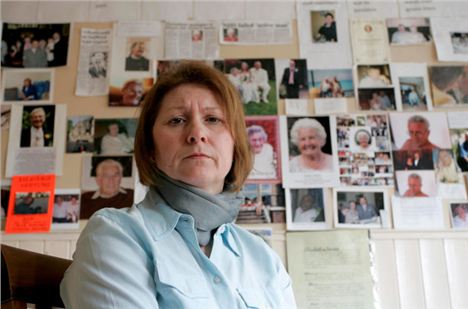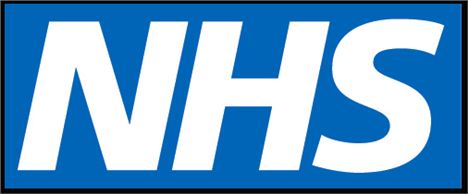I FIRST came across torture in the NHS, just over 30 years ago.
As a member of the North Manchester Health Authority I was asked to chair an Internal Appeals Panel to hear the case of a dismissed Sister. The Sister had been sacked for tying an elderly patient suffering from dementia to a chair and leaving her outside in the snow. Like any normal human being, I imagined how I would have felt if that patient had been a relative of mine.
Having identified the monstrous behaviour of medics and management, not one single person has lost their job.
The facts were not disputed by the Trade Union representative and he made the best case he could for clemency, but without the benefit of any mitigating factors. It was, as they say an ‘open and shut’ case. The surprise was that the GP on the Panel argued strenuously for this act of wickedness to be overlooked and the Sister given a second chance. He lost the argument and the case was dismissed on a split vote.
It was a relief when the case appeared on the front page of a local newspaper. I believed then and I believe now that the public exposure of the scandal was the best guarantee that NHS staff would not look after one of their own, at the expense of justice for the patient and her family.
The recent Dispatches programme exposed more episodes of the mistreatment of elderly patients at North Manchester General Hospital. This time I did not have to imagine that one of these patients might be a close relative, as one of them was.
It was through the prism of these two events and many others less close to home that I view, with some scepticism, the report of Robert Francis QC, into the appalling events at the Mid Staffordshire Trust.
As the Prime Minister said to the House of Commons, what happened at Mid Staffordshire was “truly dreadful”. Nurses and doctors transformed from caring health professionals into callous tormentors. Patients were denied water so that in desperation they drank from dirty flower vases and some were left for days to lie in their own urine and faeces.
It is estimated that up to 1,200 people died unnecessarily as well as many more suffered pain and humiliation. Relatives complaints were ignored and if it wasn’t for the wonderful persistence of Julie Bailey who established the campaign group ‘Cure the NHS’ after her mother, Bella died in this wretched hospital, we might not know the facts of this case.
The mammoth Francis Report is certainly not a whitewash, it explains what happened in horrifying, technicolour detail. It is more the case that the report is irrelevant and fails to meet the just demands of the bereaved relatives.
Having identified the monstrous behaviour of medics and management, not one single person has lost their job.
It is the grossest of insults that Sir David Nicholson, who was Chair of the Strategic Health Authority, has now got the top job in the NHS. The administrators who decided that a receptionist could do the job of a triage nurse are still in post, and the medics who failed in their basic professional duties are also still practising. Nobody in authority has resigned, no medical professional been struck off.
It is no wonder that the public is increasingly alienated from public life, when not one person is held responsible for more than 1,000 deaths and suffering on an industrial scale.
Just as the Francis Report lets off the guilty, his 290 recommendations for the future are nebulous and couched in the gobbledygook of new management speak.
We know that once we have wandered into the world of ‘cultural change’ ‘single regulator’ ‘revamping of managerial accreditation’, more ‘weekly multi-disciplinary meetings’, and better communication between Monitor and Healthcare Commission, all is lost.
Expect more management jobs, forms to be filled in and red tape. Almost certainly even less chance of stopping or exposing new scandals.
The creation of the National Health Service is Labour’s greatest legacy to this country. As Nigel Lawson once said, “the NHS is the nearest thing we have to a national religion”. The founding principle of the NHS that healthcare should be free at the time of need removing the fear that ill health will lead to death or bankruptcy is one of the signs that we live in a civilised society.
My hope is for a more aggressive press to expose these scandals, heads on blocks as a lesson that in future bureaucrats and medics will not get away with culpable behaviour.
The Mid Staffordshire scandal and the North Manchester cases I have described at the start of this article are not representative or typical of the NHS.
However, there have always been inexplicable, individual and collective incidents in which professionals whose job it is to care for and protect their patients instead do the opposite. Indeed Francis recognises this by saying that Mid Staffordshire was “ not an event of such rarity or improbability that it would be safe to assume it would not be repeated”. New investigations have already started.
In the past when these incidents have come to light, they have not been dealt with well.
Health professionals have circled their wagons and defended the indefensible: there are rarely consequences for the perpetrators of vile actions; dips in standards go unremedied.
Francis’s recommendations give no confidence that this won’t be the case in the future. I don’t believe that there is a magic wand that will create structures or regulation that would ensure we won’t be looking at another Mid Staffordshire in the near future.
My hope is for a more aggressive press to expose these scandals, heads on blocks as a lesson that in future bureaucrats and medics will not get away with culpable behaviour and finally the inculcation of values into patients, relatives and staff that if they observe cruel and inhumane behaviour and do nothing about it, they are as guilty as those directly responsible.
This will not be easy, but is likely to be much more effective, than any mere structural change.
 Graham StringerGraham Stringer is a regular columnist for Manchester Confidential. He is the Labour Member of Parliament for Blackley and Broughton with a majority of 12,303. He was elected to Parliament in 1997 for the now abolished constituency of Manchester Blackley. Prior to this he was the Leader of Manchester City Council from 1984-1996. He is one of the few MPs to have science experience, as a professional analytical chemist. He is a member of The Science and Technology Committee at Westminster.
Graham StringerGraham Stringer is a regular columnist for Manchester Confidential. He is the Labour Member of Parliament for Blackley and Broughton with a majority of 12,303. He was elected to Parliament in 1997 for the now abolished constituency of Manchester Blackley. Prior to this he was the Leader of Manchester City Council from 1984-1996. He is one of the few MPs to have science experience, as a professional analytical chemist. He is a member of The Science and Technology Committee at Westminster.













